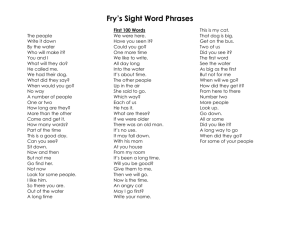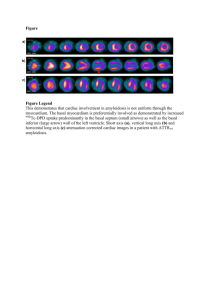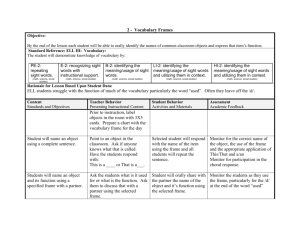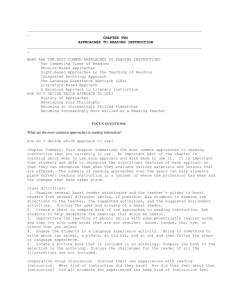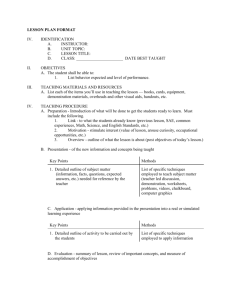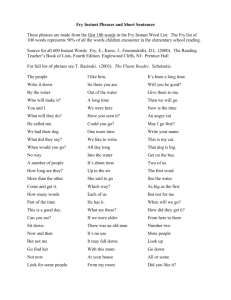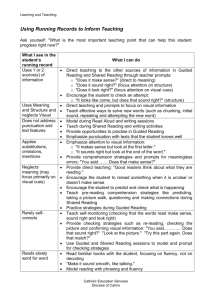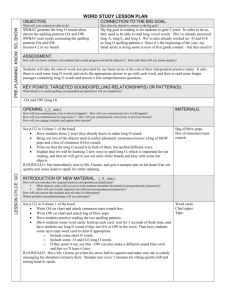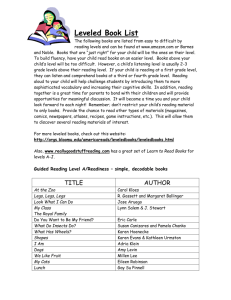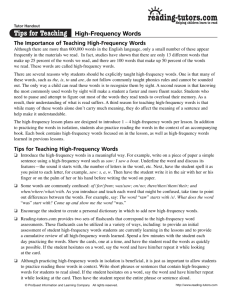Teaching Sight Words verses Vocabulary Words
advertisement
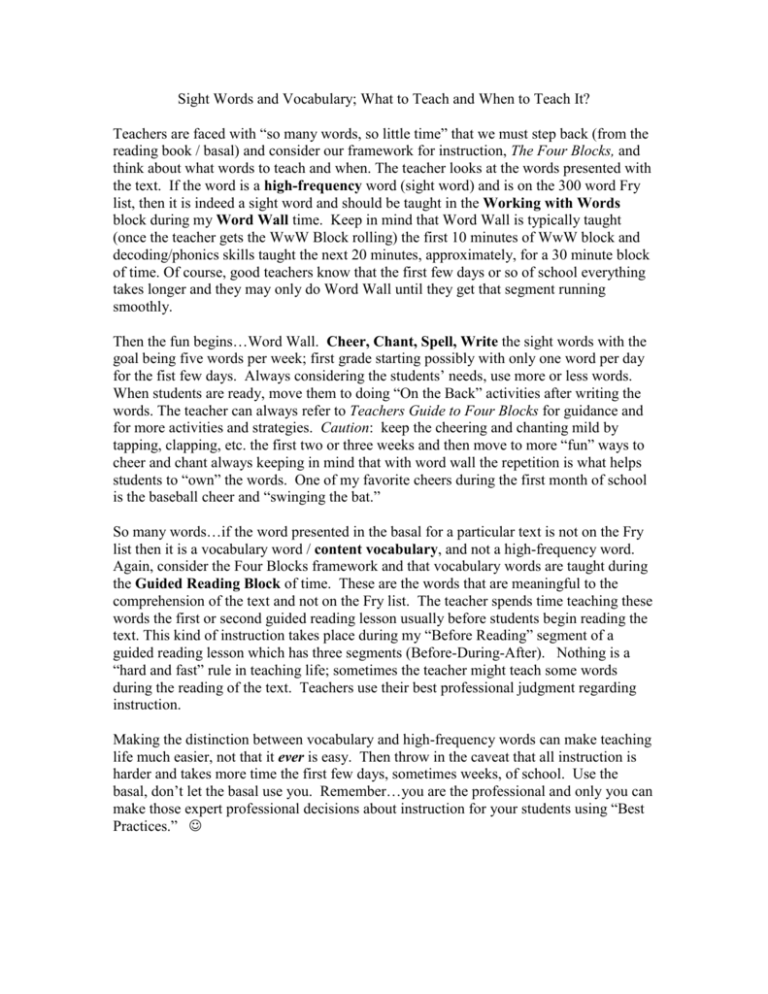
Sight Words and Vocabulary; What to Teach and When to Teach It? Teachers are faced with “so many words, so little time” that we must step back (from the reading book / basal) and consider our framework for instruction, The Four Blocks, and think about what words to teach and when. The teacher looks at the words presented with the text. If the word is a high-frequency word (sight word) and is on the 300 word Fry list, then it is indeed a sight word and should be taught in the Working with Words block during my Word Wall time. Keep in mind that Word Wall is typically taught (once the teacher gets the WwW Block rolling) the first 10 minutes of WwW block and decoding/phonics skills taught the next 20 minutes, approximately, for a 30 minute block of time. Of course, good teachers know that the first few days or so of school everything takes longer and they may only do Word Wall until they get that segment running smoothly. Then the fun begins…Word Wall. Cheer, Chant, Spell, Write the sight words with the goal being five words per week; first grade starting possibly with only one word per day for the fist few days. Always considering the students’ needs, use more or less words. When students are ready, move them to doing “On the Back” activities after writing the words. The teacher can always refer to Teachers Guide to Four Blocks for guidance and for more activities and strategies. Caution: keep the cheering and chanting mild by tapping, clapping, etc. the first two or three weeks and then move to more “fun” ways to cheer and chant always keeping in mind that with word wall the repetition is what helps students to “own” the words. One of my favorite cheers during the first month of school is the baseball cheer and “swinging the bat.” So many words…if the word presented in the basal for a particular text is not on the Fry list then it is a vocabulary word / content vocabulary, and not a high-frequency word. Again, consider the Four Blocks framework and that vocabulary words are taught during the Guided Reading Block of time. These are the words that are meaningful to the comprehension of the text and not on the Fry list. The teacher spends time teaching these words the first or second guided reading lesson usually before students begin reading the text. This kind of instruction takes place during my “Before Reading” segment of a guided reading lesson which has three segments (Before-During-After). Nothing is a “hard and fast” rule in teaching life; sometimes the teacher might teach some words during the reading of the text. Teachers use their best professional judgment regarding instruction. Making the distinction between vocabulary and high-frequency words can make teaching life much easier, not that it ever is easy. Then throw in the caveat that all instruction is harder and takes more time the first few days, sometimes weeks, of school. Use the basal, don’t let the basal use you. Remember…you are the professional and only you can make those expert professional decisions about instruction for your students using “Best Practices.”

